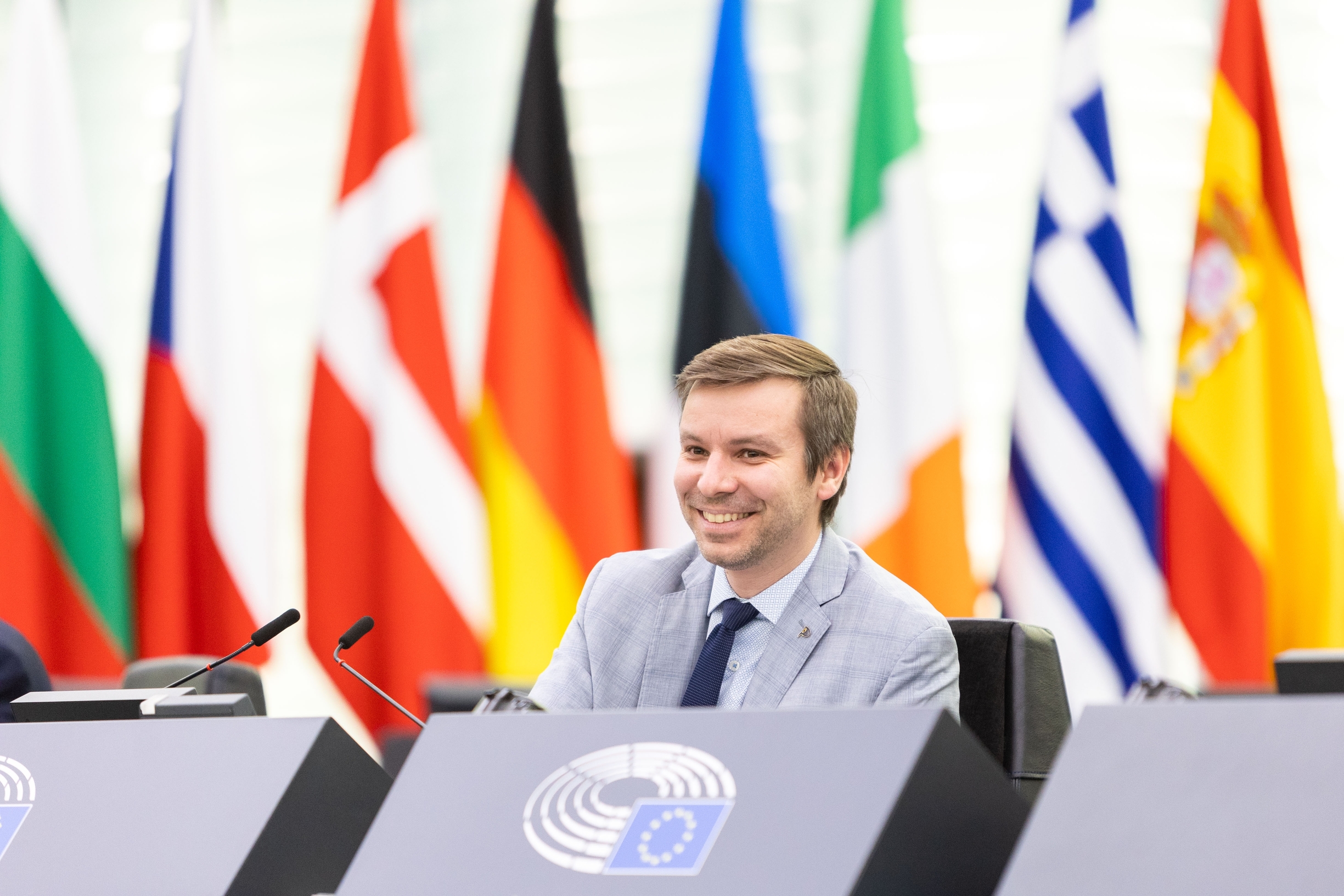Half of the mandate is behind me, and I have to say it was a ride. I am pleased how many things I have succeeded in enforcing and opening up for future negotiations. Together with the Pirates, we are helping to navigate Europe in the digital age and increase transparency of the European institutions, as we promised.
Prior to the European Parliament elections in 2019, one of our main Pirate priorities was a free Europe that needed to be upgraded. In other words, European policy should be more transparent and closer to the people. And I have been working on it since I was elected. 2.5 years have passed since then. What are our greatest accomplishments?
- Internet rules to finally meet the demands of the 21st century
One of the Pirate Party priorities is to update rules in the digital world, so that it matches the demands of the 21st century. What I have been working on for a long time and pushed through a number of my proposals into is the Digital Markets Act (DMA), which we adopted in the plenary this week.
The Digital Markets Act aims at ensuring fair competition in the digital environment by preventing big tech gatekeepers from abusing their power. It sets ex-ante rules that prevent unfair practices of technological giants. Together with the Digital Services Act (DSA), the Digital Markets Act is one of the core elements of the EU’s Digital Strategy.
A significant feature of the Digital Markets Act is that the Parliament has substantially improved the interoperability obligation. The text adopted by the IMCO committee introduces an interoperability obligation for social networks and interpersonal communication services. This will be of enormous benefit to users who are already fed up with having to deal with five different applications and profiles just to stay in touch with all their friends on social networks or chat platforms.
The new requirements will also allow people to use any app store they want. Users will no longer be restricted to having only Apple App Store, for instance, since it will now be possible to have third-party app stores.
Read more on Digital Markets Act in my Brussels Morning comment. https://brusselsmorning.com/dma-aims-to-restore-digital-market-competitiveness/18829/
- Ban on facial recognition mass surveillance in public
It was an absolute breakthrough! The Pirates have succeeded in finding a Parliament-wide compromise on a ban on mass surveillance of people in the European Parliament’s report on artificial intelligence (AI) in criminal law, specifically a ban on biometric surveillance in public, such as the use of facial recognition in public places. I worked on the report as the opinion rapporteur of the IMCO committee.
For the first time, the European Parliament has clearly opposed the misuse of artificial intelligence to widespread surveillance, which would give authoritarians another tool to persecute their opponents. This technology could be misused very easily and, moreover, is often flawed. The majority of the European Parliament supported the report. As the opinion rapporteur in the CULT committee, I am currently working on a ban on facial recognition systems in public space in the artificial intelligence act.
- Increasing transparency in the European Parliament
So, how are we doing in changing the way the European Parliament works? We pursue digitization, voting by roll call, and transparency of taxpayers’ money spending.
Last year, we managed to endorse usage of Free and Open Source Software as a preferred solution within the Parliament’s budgetary discharge report. This year, we increased the pressure and pushed through further amendments. That will lead to greater digitization, more transparent voting process and public budget spending. For example, remote voting in the plenary and in the Committees are taken by roll call and the results are publicly available, in order to make it verifiable that votes are counted correctly.
More details you can read on my previous blog explaining we are acting, instead of false promises ( https://www.kolaja.eu/en/post/20210715-deeds_instead_of_false_promises_how_my_work_in_the_european_parliament_improves_transparency/ )
- No mandatory of upload filters
At the April’s parliamentary plenary this year, a Regulation on tackling the dissemination of the terrorist content on-line was adopted – a long-awaited legislation, which I coordinated as the opinion rapporteur for the opinion giving Committee on the Internal Market and Consumer Protection (IMCO). Unfortunately, the Regulation allows a cross-border removal of content under the pretext of terrorism in a way that is unacceptable for the Pirates. Nevertheles, we achieved tangible results that introduce some safeguards against abuse of the Regulation. For instance, we successfully enforced an exception for materials published for educational, journalistic, artistic, or research purposes.
Under the new rules, platforms have to delete content identified by the authorities as terrorist, within one hour after reporting it and receiving an official order for its removal. Which the Pirates disagreed with. Luckily, we negotiated an exemption for small non-commercial on-line platforms, for which the deadline is rather impossible to comply with.
We have also successfully ensured that the Regulation does not contain an explicit obligation to use upload filters; having said that, I am deeply concerned that many platforms will still choose filters as a solution. As one hour is a very tight deadline, many companies will use automatic filters and artificial intelligence systems to delete or prevent uploading potentially harmful content, which will unavoidably block legitimate and useful content.
The show goes on
We are halfway through the term, and I will continue the work I started. The negotiations on the Digital Markets Act will continue in the trilogue and the Parliament will start the work on the Artificial Intelligence Act.


0 comments on “Marcel Kolaja: The first half of my term – four main achievements”